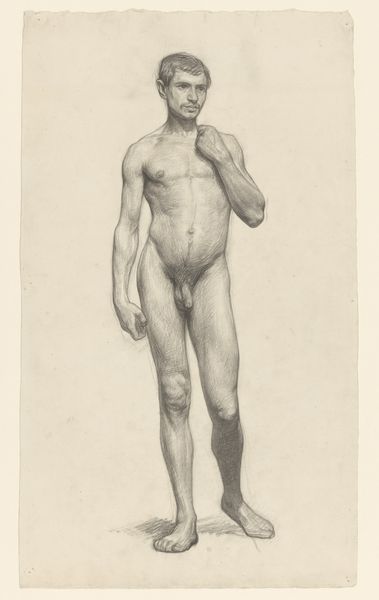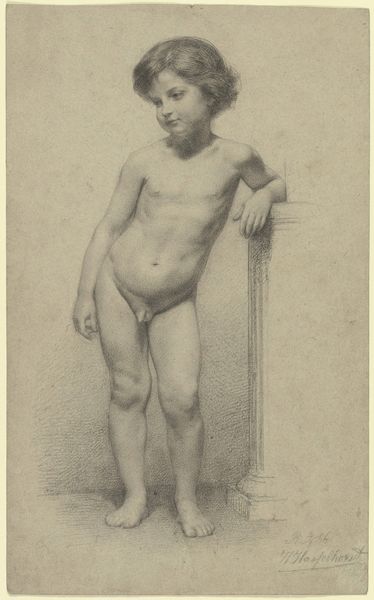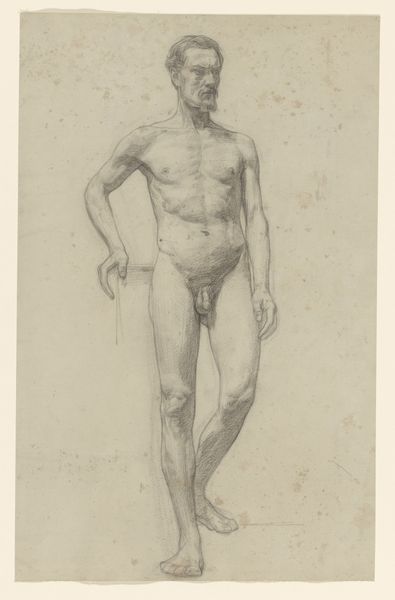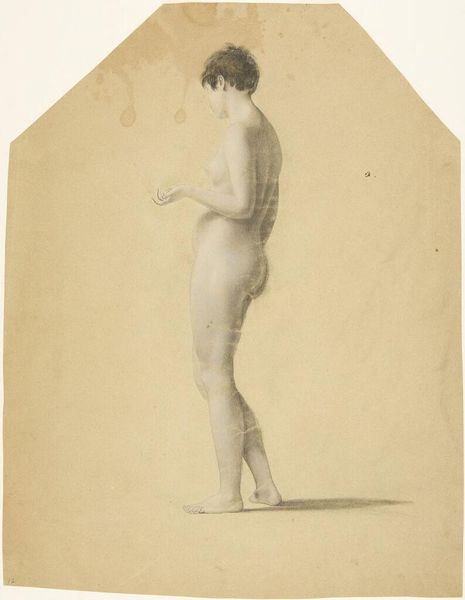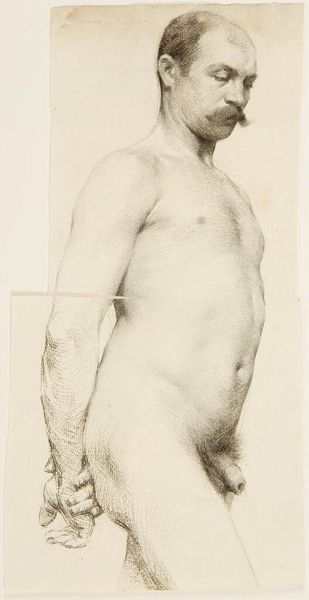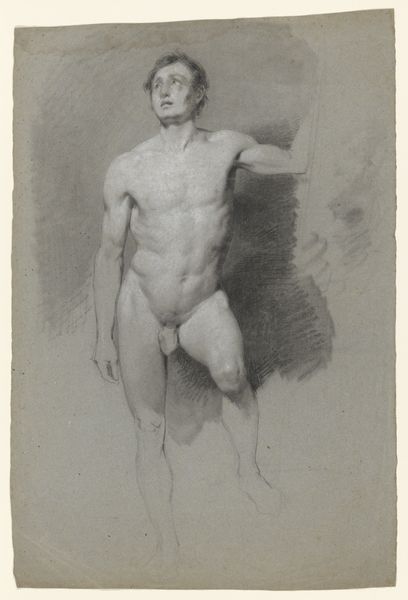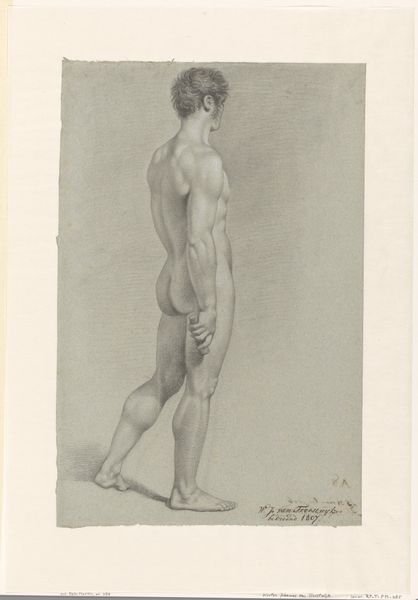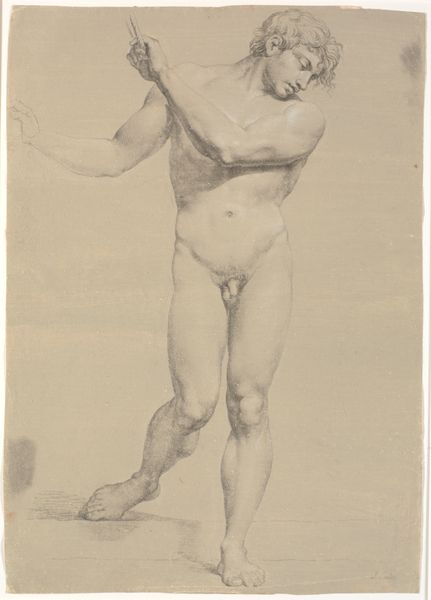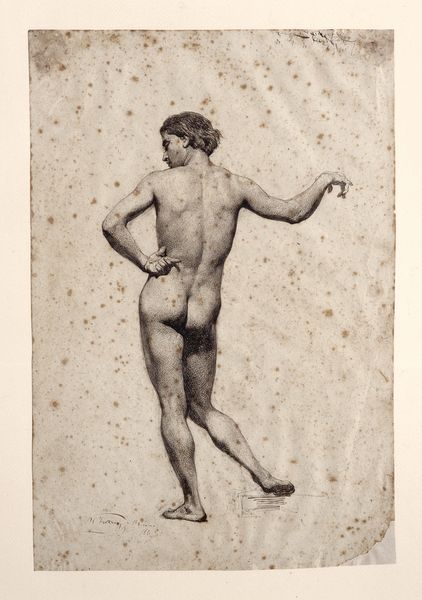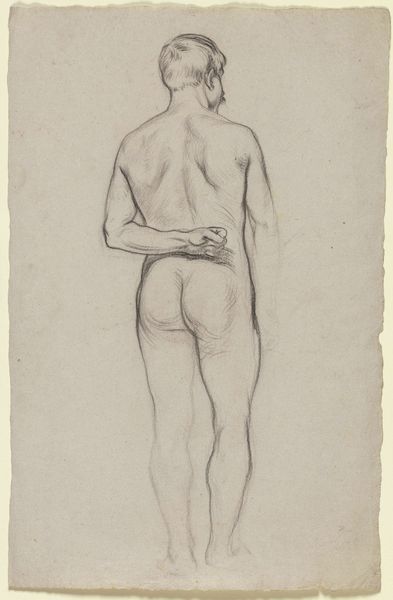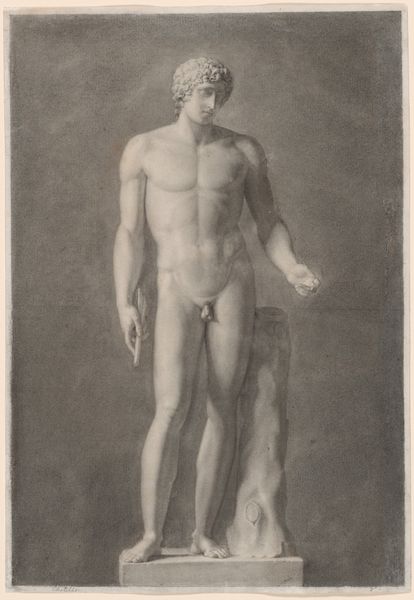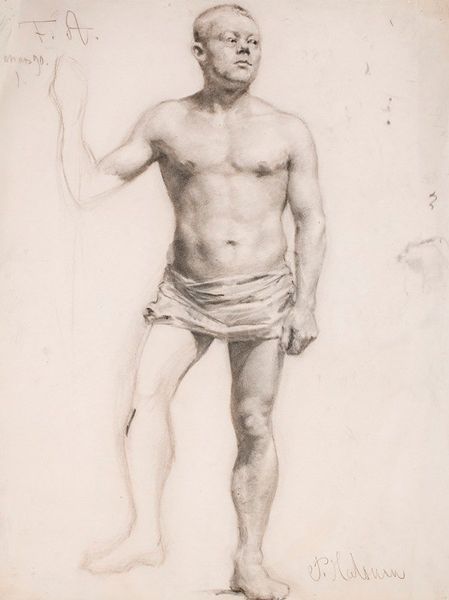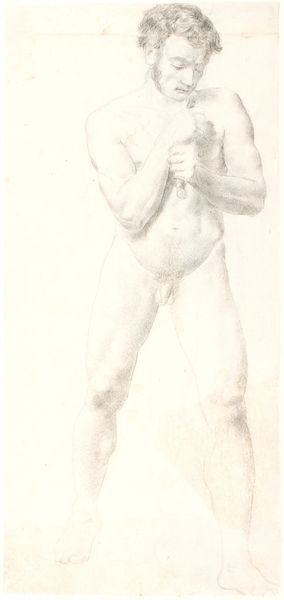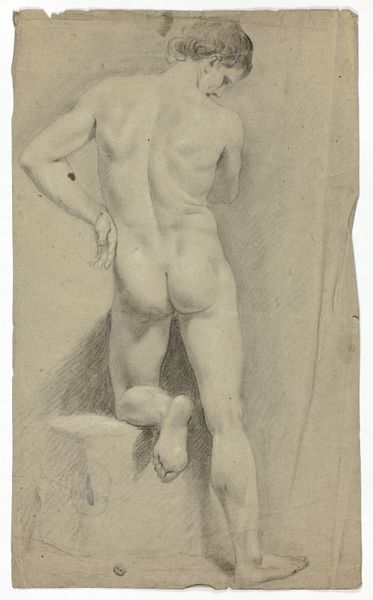
drawing, pencil, graphite
#
portrait
#
drawing
#
charcoal drawing
#
figuration
#
pencil drawing
#
pencil
#
graphite
#
portrait drawing
#
academic-art
#
nude
#
portrait art
#
male-nude
Copyright: Public domain
Curator: Before us, we have a work known as "Academic male," by Ernest Hébert, executed in graphite and pencil. Editor: My initial impression is of vulnerability, almost discomfort. The figure's posture—arms crossed protectively—contrasts sharply with the traditionally confident male nude we often see in academic art. Curator: It's interesting you say that. Hébert was working within a very specific framework. Consider the *Académie des Beaux-Arts* and the strict protocols they imposed. This drawing would likely have been a preparatory study. Think about the performative nature of academic exercises—a dance between prescribed norms and individual interpretation. Editor: Precisely. And within that performance, the artist still manages to convey something deeply personal. His slightly furrowed brow, the tense shoulders... it humanizes the figure, disrupting the ideal. How was this type of work received at the time? Curator: Well, male nudes, particularly academic studies, were simultaneously revered and scrutinized. They served as a bedrock of artistic training but also functioned as displays of power and societal expectations concerning masculinity. Editor: That tension is palpable here. The very act of depiction inherently involves power dynamics. Looking at his stance, there's an awareness of being observed, critiqued, even judged. The social construction of masculinity weighs heavily, even within the 'objective' space of the Academy. What do you think was Hébert's intention here, portraying him like that? Curator: That’s the open question, isn’t it? Perhaps to showcase technical prowess within acceptable boundaries or even hint at a quiet rebellion against idealized forms. We cannot be certain. But regardless, a powerful and intriguing impression remains. Editor: I think considering it within the framework of both Hébert's historical context, and today, makes us consider this work in such different terms. Thanks for the new perspectives. Curator: A pleasure.
Comments
No comments
Be the first to comment and join the conversation on the ultimate creative platform.
